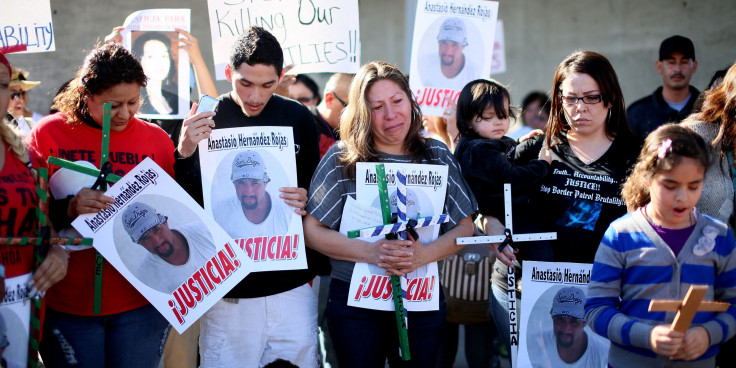
The United Nations Human Rights Council will examine the 2010 death of a Mexican immigrant in U.S. custody as part of its Universal Periodic Review (UPR), a process that evaluates member states' compliance with human rights obligations.
The review follows the submission of evidence by Alliance San Diego and the Human Rights Clinic at UC Berkeley Law, which argue that the use of force by U.S. Border Patrol agents violated international treaties.
Anastasio Hernández Rojas, a longtime U.S. resident and construction worker, died in May 2010 after being beaten and repeatedly shocked with a Taser by a dozen U.S. border agents while in custody near the San Diego-Tijuana border, as Forbes Mexico recalls. Witness videos captured him face down, handcuffed, and crying out for help as agents restrained him with their knees on his back and neck. The San Diego County Medical Examiner ruled his death a homicide.
Alliance San Diego and the Human Rights Clinic, who serve as co-counsel to Hernández Rojas' family in a related case before the Inter-American Commission on Human Rights (IACHR), argued through a joint statement on Monday that the incident reflects deeper systemic issues:
"Because of its deadly and deficient standard, U.S. border agents were able to get away with brutally beating, kicking, electrocuting, and torturing Anastasio, a longtime resident of San Diego, while he was hogtied and lying face down surrounded by agents until he stopped breathing and eventually died in May 2010. Consequently, no agent was held accountable. In fact, in the last 100 years, no U.S. federal border agent has ever been held accountable for killing someone. Ever."
The legal standard used by U.S. border agents allows the use of force deemed "objectively reasonable" from the officer's perspective. Advocates claim this standard falls short of the international "necessary and proportionate" principle that governs the use of force under human rights treaties the U.S. has signed.
The Mexican government has publicly supported the Hernández Rojas family, denouncing the excessive use of force and providing legal assistance through its San Diego consulate. Back in May, upon the 14th anniversary of Hernandez Rojas' death, the Mexican government published a statement which read:
"The Government of Mexico opposes the excessive use of force by authorities when detaining any individual, regardless of their nationality or immigration status. It reiterates its condolences to the family of Anastasio Hernández Rojas and reaffirms that the defense of the rights of Mexican nationals abroad is a priority in its foreign policy"
The U.S. government's actions will be scrutinized in November 2025, when the UN Human Rights Council publishes its findings. In July 2020, the IACHR accepted the case for review; a final ruling is expected soon.
© 2025 Latin Times. All rights reserved. Do not reproduce without permission.






